Health
California schools now allow kids to attend with cough and cold symptoms, health department says
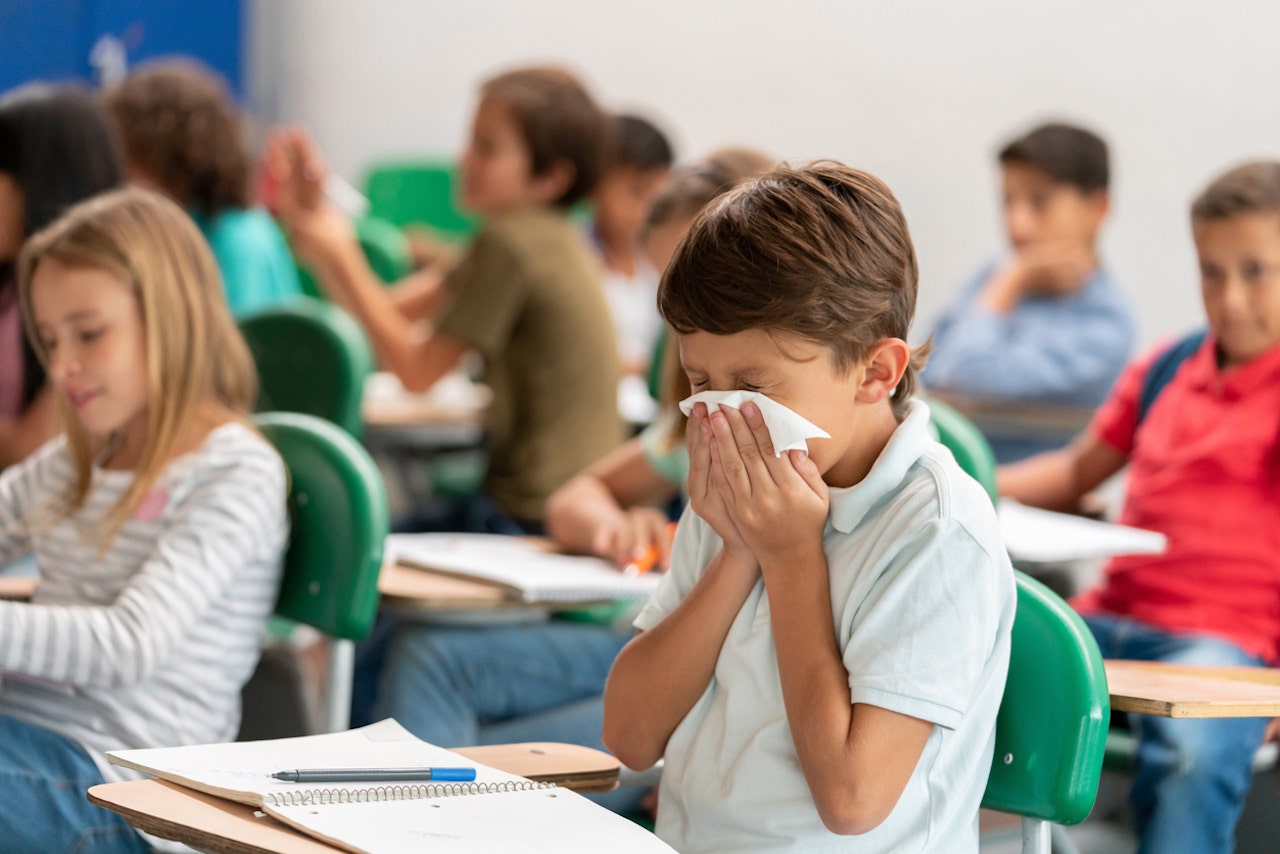
A growing number of schools are relaxing their restrictions and opening their doors to kids with coughs, sore throats and other symptoms.
This is a marked difference from the strict guidelines during the COVID-19 pandemic — when parents were advised to keep students home at any sign of illness.
California is one of the states that has relaxed its restrictions, as outlined on the state health department’s website.
KIDS’ STOMACH PAIN IS COMMON COMPLAINT, YET MANY PARENTS DON’T SEEK MEDICAL CARE, POLL FINDS
Students may attend school or child care even if they have cough and cold symptoms, including a runny or stuffy nose, sneezing, congestion or body aches — with the exception of those who also have a fever, uncontrolled coughing fits or difficulty breathing.
Kids who have a headache or a stiff, painful neck may also come to school in the absence of a concussion or infection, according to the California Department of Public Health (CDPH).
A growing number of schools are relaxing restrictions and opening their doors to kids with coughs, sore throats and other symptoms. (iStock)
The Golden State also allows kids to go to school with pink eye, as long as they don’t have vision problems, pain or injury.
Stomach pain is also OK, unless it involves an injury, vomiting, diarrhea or fever.
AS CHILDHOOD PNEUMONIA SPREADS, HERE’S WHAT PARENTS CAN DO TO KEEP THEIR KIDS HEALTHY
In some cases, students may even attend with an earache, diarrhea or wheezing, according to the health department’s guidelines.
California has also updated recommendations for individuals who have tested positive for COVID-19, the CDPH said in an email to Fox News Digital.
Although those who test positive are still advised to monitor symptoms and stay home if they have a fever and feel ill, the days of mandated quarantines appear to be over.
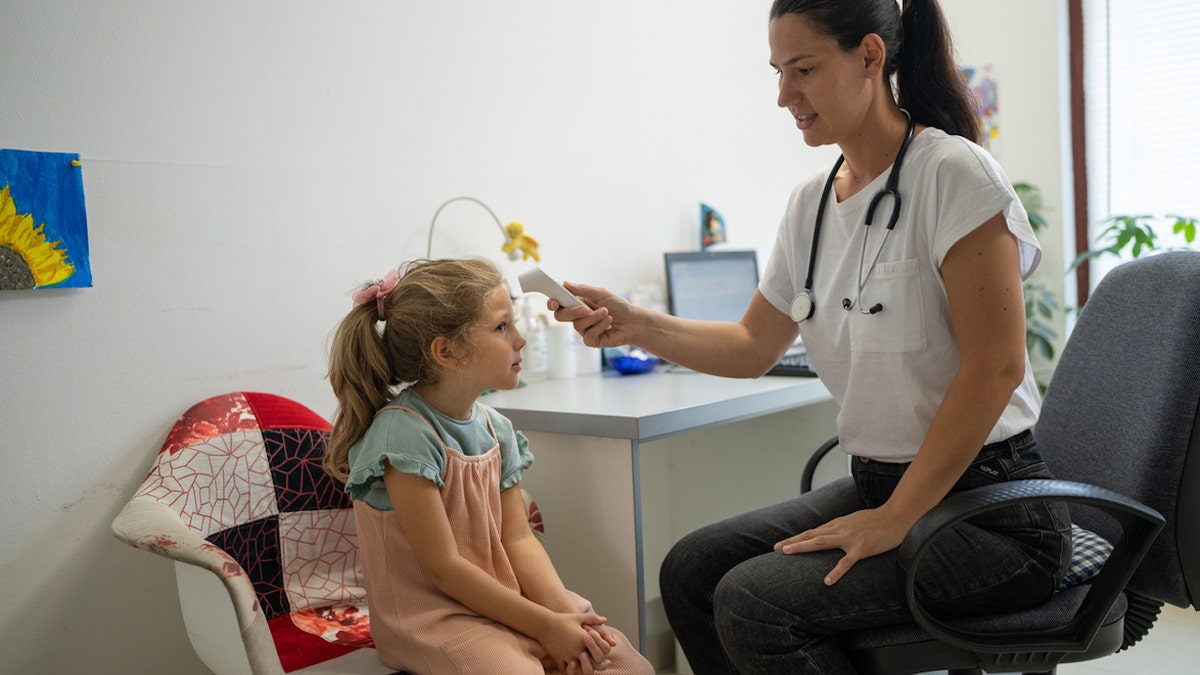
The state of California has relaxed its restrictions, as outlined on the state health department’s website, and has opened its schools’ doors to kids with coughs, sore throats and other symptoms. (iStock)
“Instead of staying home for a minimum of five days, individuals may return to work or school when they start to feel better, meaning that their symptoms are mild and improving, and they have not had a fever for a full day (24 hours) without the use of fever-reducing medication,” the CDPH told Fox News Digital.
The department does still recommend 10 days of masking for students who have tested positive for COVID or have respiratory symptoms.
“Instead of staying home for a minimum of five days, individuals may return to work or school when they start to feel better.”
The state has also relaxed its COVID testing guidance.
“People who have been exposed to a confirmed case of COVID-19 and do not have COVID-19 symptoms are only recommended to test if they are at higher risk of severe disease and would benefit from treatment OR if they have contact with people who are at higher risk for severe COVID-19 infection,” the agency said.
“The reason for these changes is that we are now at a different point in time with reduced impacts from COVID-19 compared to prior years due to broad immunity from vaccination and/or natural infection, and readily available treatments for infected people,” the CDPH added.
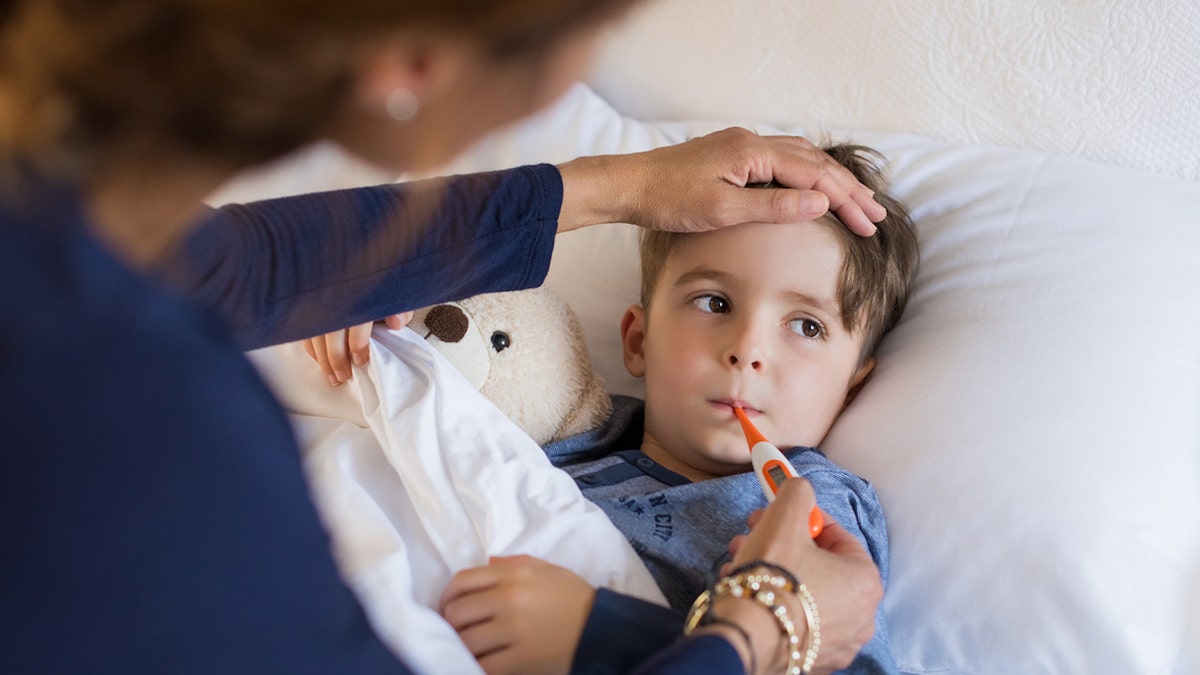
A child who has a fever along with another symptom or sign of illness should not attend school or child care, according to the CDPH. (iStock)
The city of Boston, Massachusetts, also has relaxed its stay-at-home restrictions for sick kids.
On the Boston Public Schools website, the district states that students can attend with “common” respiratory infections.
COVID LOCKDOWNS INCREASED ADHD RISK AMONG 10-YEAR-OLD CHILDREN, NEW STUDY FINDS
“If the child does not have fever, does not appear to have decreased activity or other symptoms, it is not necessary for the child to stay home,” the guidance says.
Students may also attend if they have vomited once in the past 24 hours — but vomiting two or more times is grounds for staying home, the district stated.
Public health agencies’ recommendations
The Centers for Disease Control and Prevention (CDC) still adheres to stricter guidelines, stating that people with symptoms of respiratory or gastrointestinal infections, including cough, fever, sore throat, vomiting or diarrhea, should stay home.
The CDC also recommends that anyone who experiences symptoms of COVID-19 should be tested for the virus right away.
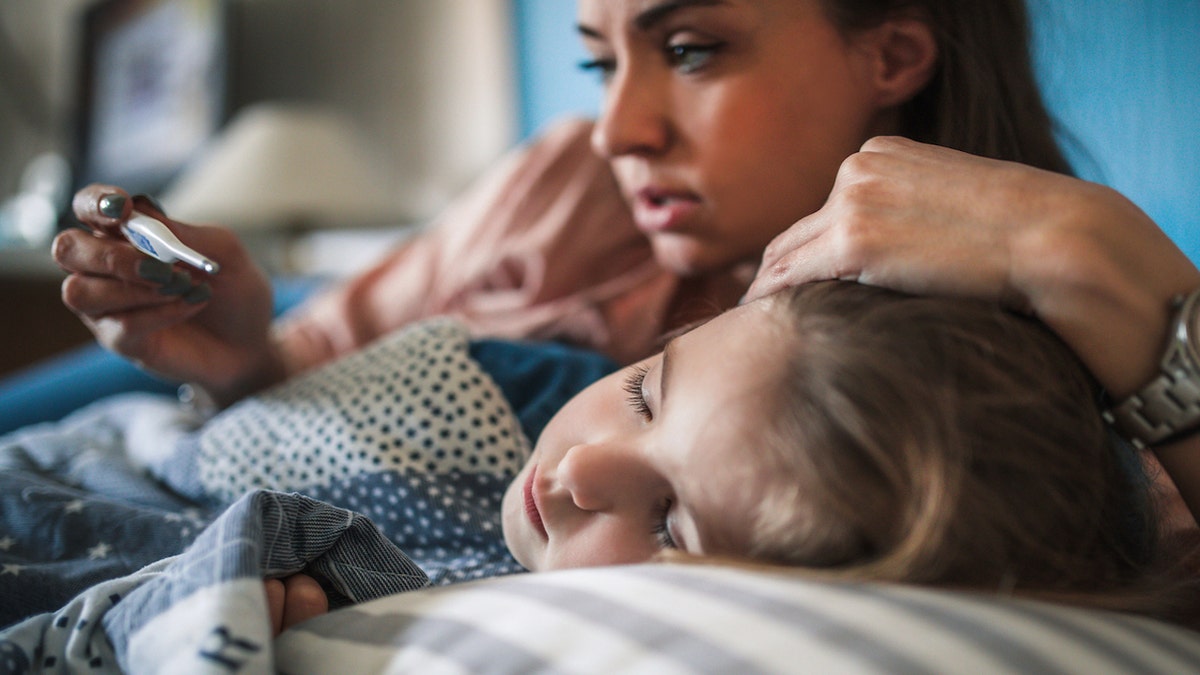
The AAP states that children should be kept home from school if they’ve had a fever above 101 degrees Fahrenheit within the past 24 hours, if they’ve had episodes of vomiting or diarrhea within the past 24 hours, or if they are not well enough to participate in class. (iStock)
The American Academy of Pediatrics (AAP) states on its website that children should be kept home from school if they’ve had a fever above 101 degrees Fahrenheit within the past 24 hours, if they’ve had episodes of vomiting or diarrhea within the past 24 hours, or if they are not well enough to participate in class.
COLD, FLU, COVID-19 AND RSV: HOW TO IDENTIFY THE DIFFERING SYMPTOMS AND STAY SAFE
“If your child has been ill and is feeling better, but still wakes up with minor problems such like a runny nose or slight headache … you can send them to school if none of the three circumstances listed above is present,” the AAP stated.
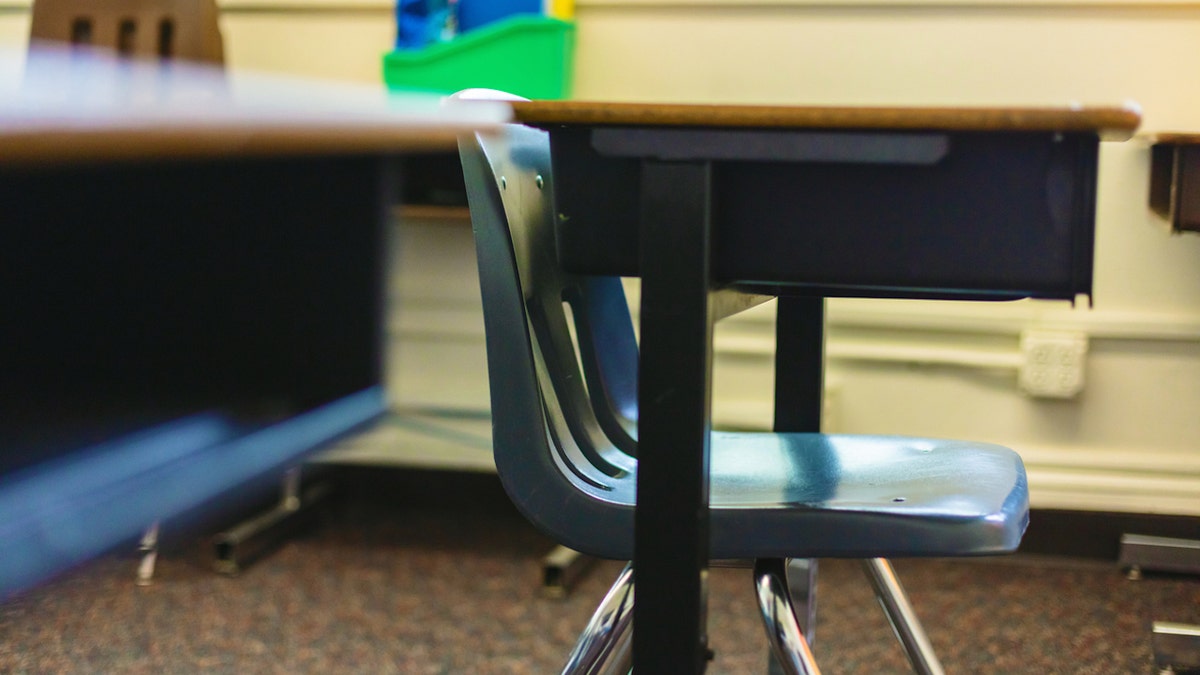
The AAP warned of the dangers of “chronic absenteeism,” including lower literacy levels in young children and a higher risk of failing, getting suspended or dropping out among older students. (iStock)
The AAP also warned of the dangers of “chronic absenteeism” — including lower literacy levels in young children and a higher risk of failing, getting suspended or dropping out among older students.
“Chronic absenteeism is also linked with teen substance use, as well as poor health as adults,” the organization added.
Doctors’ input on school policies
Dr. Shana Johnson, a physical medicine and rehabilitation physician in Scottsdale, Arizona, said that more relaxed school policies reflect “a better balance” between illness prevention and the impact of absences.
“Sick policies in schools have evolved to reflect the transition from a COVID public health emergency to COVID being endemic, or ever-present, in our communities,” she told Fox News Digital.
“Current policies better balance limiting the spread of disease with the harms of excessive absences.”
“Current policies better balance limiting the spread of disease with the harms of excessive absences, which include detriments to children’s education, social development and mental health,” she added.
The “hard-lined” COVID policies that were enacted in many states resulted in “tremendous harm” to children, Johnson said — including substantial learning loss, arrested social development and a spike in mental health crises.
“Now, four years following the emergence of COVID, we understand the virus better and have vaccines and treatments that reduce the severity of illness it causes,” she said.
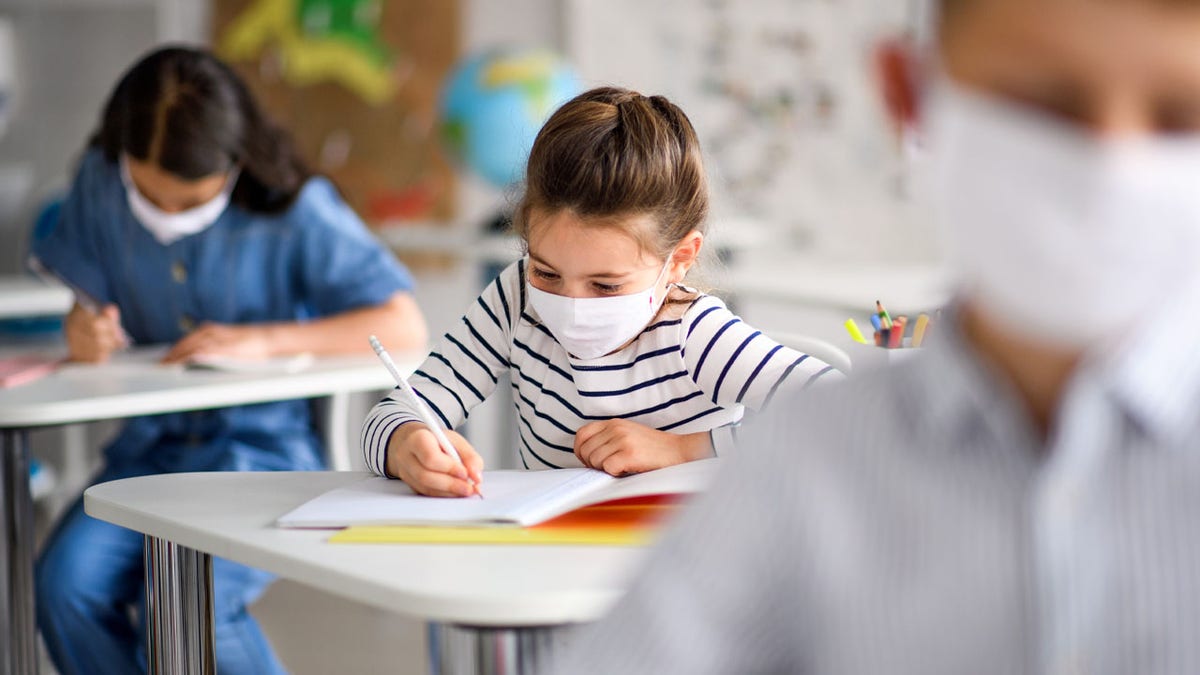
The state of California still recommends 10 days of masking for students who have tested positive for COVID or have respiratory symptoms. (iStock)
“Also, a large portion of the population has been exposed to COVID and has a level of protective immunity,” the doctor added. “All of the above lowers the risk of harm from the virus.”
Sick policies in schools are now more reflective of those in place before the pandemic, according to Johnson.
“Before the pandemic, children attended school with a mild cold; they stayed home with moderate or severe symptoms such as fever and excessive cough,” she said.
CLICK HERE TO SIGN UP FOR OUR HEALTH NEWSLETTER
“Some children have back-to-back colds for six months out of the year, especially younger children,” the doctor went on. “The hard-line policies would have these kids out of school for half the year.”
She added, “For a virus that causes mild symptoms in kids, missing half the year is not reasonable.”

Dr. Marc Siegel, clinical professor of medicine at NYU Langone Medical Center and a Fox News medical contributor, said that kids with infectious-type symptoms, especially frequent upper respiratory symptoms, should not attend school. (Fox News)
Dr. Marc Siegel, clinical professor of medicine at NYU Langone Medical Center and a Fox News medical contributor, said that kids with infectious-type symptoms, especially frequent upper respiratory symptoms, should not attend school at all.
“An occasional cough or sneeze or a confirmed allergy is one thing, but sore throat, cough, body aches or congestion are consistent with an ongoing contagion that is easily spread at school,” he warned.
“Not only that, but there is the issue of the child recuperating and being at full strength.”
During what Siegel described as a particularly bad flu, RSV and COVID season, he stressed the importance of “doing our best to not spread these bugs at school.”
For more Health articles, visit www.foxnews/health.

Health
What Happens If You Eat Eggs Every Day? Nutritionists Share the Benefits

Sign Up
Create a free account to access exclusive content, play games, solve puzzles, test your pop-culture knowledge and receive special offers.
Already have an account? Login
Forgot your password?
Get back to the Sign In
Use left and right arrow keys to navigate between menu items.
Use escape to exit the menu.
Health
Ask a doctor: ‘I swallowed a bug — now what should I do?'
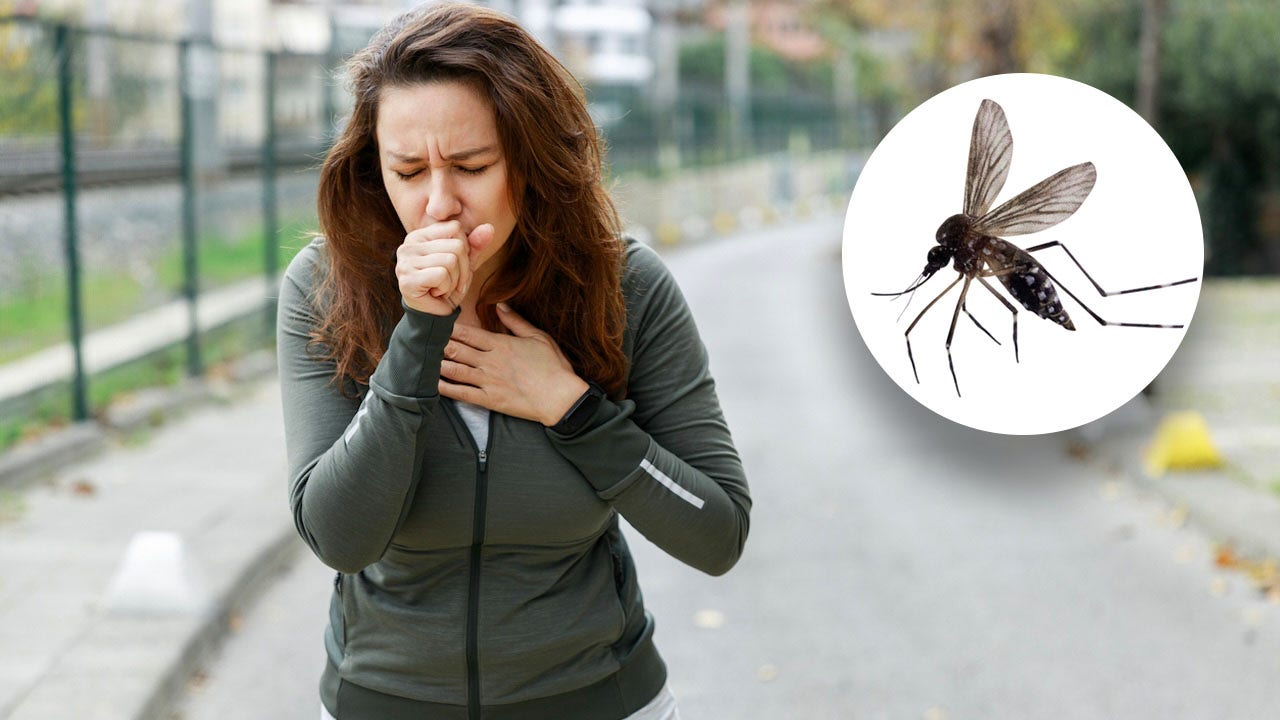
Most people have experienced that moment of discomfort when they realize a bug has wound up where it shouldn’t be — in their windpipe.
That includes Taylor Swift, who on more than one occasion has accidentally swallowed a bug while performing on stage in front of thousands of people.
It can be a startling and somewhat disgusting occurrence — but is this dangerous, or just a nuisance?
LOCAL DENGUE FEVER CASES CONFIRMED IN FLORIDA KEYS, SPREAD BY MOSQUITO BITES
Dr. Raj Dasgupta, a quadruple board-certified physician in California, shared with Fox News Digital the true impacts of accidentally swallowing a bug, and the best thing to do if it happens.
“Swallowing a bug can often happen accidentally when you’re eating or drinking outside, or if a bug flies into your mouth,” Dasgupta, who serves as chief medical advisor for Fortune Recommends, told Fox News Digital via email.
Dr. Raj Dasgupta, a quadruple board-certified physician in California, discussed the impact of accidentally swallowing a bug — and the best thing to do if it happens. (Sleepoplis)
“It can also happen if you’re talking or laughing outdoors. Sometimes it might even happen indoors if bugs are in your food or drink and you don’t realize it.”
ASK A DOCTOR: ‘HOW CAN I PREVENT SCARRING FROM BUG BITES AND POISON IVY?’
Swallowing a bug is usually not dangerous, Dasgupta noted.
“The stomach’s digestive acids usually break down the bug, and it is passed out of the body without causing harm,” he said.
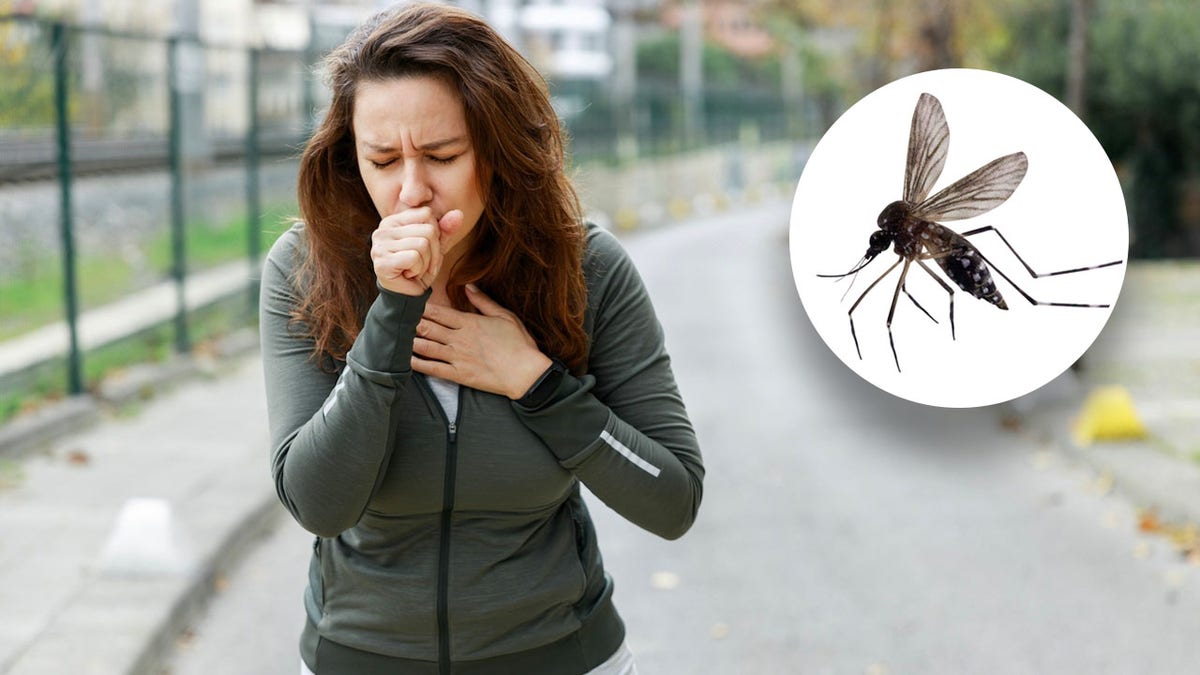
“Swallowing a bug can happen accidentally when you’re eating or drinking outside, or if a bug flies into your mouth,” the doctor told Fox News Digital. (iStock)
If the bug carries harmful bacteria or parasites, however, it could cause gastrointestinal issues or allergic reactions, according to the doctor.
The type of bug can make a difference, he said.
“Bugs like beetles or ants are less of a concern, but bugs that are known to spread diseases — such as mosquitoes — might be riskier.”
If you happen to swallow a bug, drinking some water can help wash it down, Dasgupta said.

Taylor Swift has announced the accidental swallowing of bugs, mid-concert, on more than one occasion. (Marcelo Endelli/TAS23/Getty Images for TAS Rights Management)
“If you start feeling sick, like abdominal pain, vomiting or nausea, keep an eye on your symptoms,” the doctor said.
If you have severe stomach pain, ongoing vomiting, trouble breathing, or swelling, rash or itching, Dasgupta said to see a doctor.
CLICK HERE TO SIGN UP FOR OUR HEALTH NEWSLETTER
“If you know the bug could have diseases or if you have health conditions that might complicate things, it’s a good idea to get checked out to be safe,” he added.
For more Health articles, visit www.foxnews/health
Some bugs — including grasshoppers, beetles, termites, mealworms and even stink bugs — are actually considered edible in certain countries, and are prepared and eaten as part of meals, according to WebMD’s website.
Health
“I’m a Dietitian, and Here’s Why an Overly Restrictive Diet Can Backfire”

Sign Up
Create a free account to access exclusive content, play games, solve puzzles, test your pop-culture knowledge and receive special offers.
Already have an account? Login
Forgot your password?
Get back to the Sign In
Use left and right arrow keys to navigate between menu items.
Use escape to exit the menu.
-

 World1 week ago
World1 week agoOne dead after car crashes into restaurant in Paris
-

 Midwest1 week ago
Midwest1 week agoMichigan rep posts video response to Stephen Colbert's joke about his RNC speech: 'Touché'
-

 News1 week ago
News1 week agoVideo: Young Republicans on Why Their Party Isn’t Reaching Gen Z (And What They Can Do About It)
-

 News1 week ago
News1 week agoIn Milwaukee, Black Voters Struggle to Find a Home With Either Party
-

 Politics1 week ago
Politics1 week agoFox News Politics: The Call is Coming from Inside the House
-

 Movie Reviews1 week ago
Movie Reviews1 week agoMovie Review: A new generation drives into the storm in rousing ‘Twisters’
-

 News1 week ago
News1 week agoVideo: J.D. Vance Accepts Vice-Presidential Nomination
-

 World1 week ago
World1 week agoTrump to take RNC stage for first speech since assassination attempt















